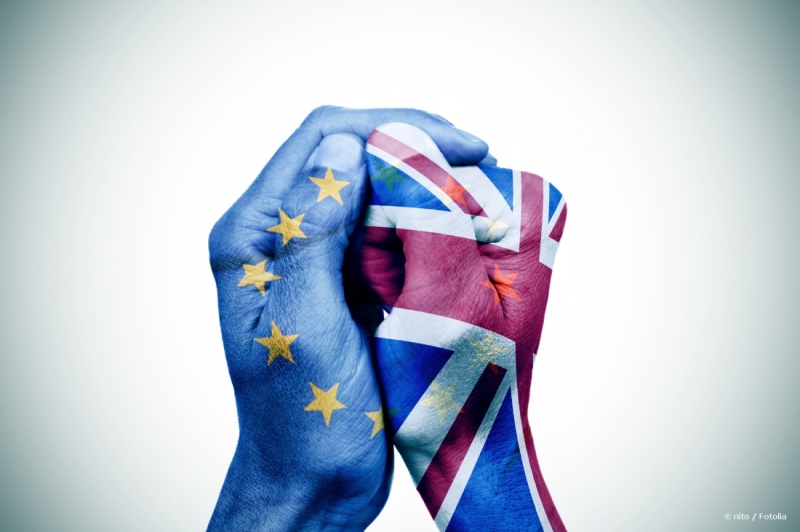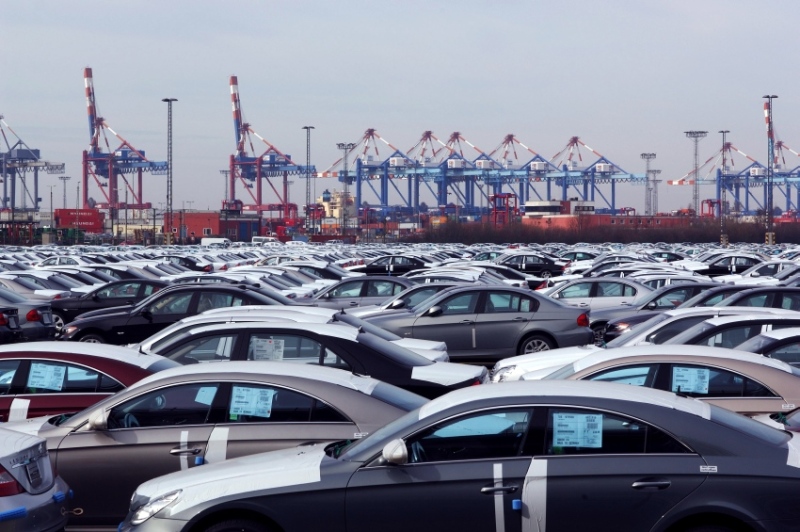Brexit is looming – so what does it mean for Bremen?
BREXITThe links between the United Kingdom and
It has been more than a year since the UK voted to leave the European Union. The exit negotiations are currently under way and scheduled to be completed by March 2019. The United Kingdom and the European Union will no longer be part of a single unit; instead they will be separated by more than just the English Channel. So how will the UK’s exit from the EU affect Bremen?

The United Kingdom – Bremen’s third-largest trading partner
Bremen is a Hanseatic city, with a long history of trade relations with other nations. More than 50 Bremen-based companies have offices in the United Kingdom, and over 300 regularly do business in the UK. The volume of trade in 2016 was more than €2.5 billion, making the UK Bremen’s third-largest trading partner behind France and the USA.
So far, membership of the EU has kept the bureaucracy of cross-border trade to a minimum. But these commercial benefits may not apply for much longer, and Brexit is likely to have a considerable impact on the import and export business. Cross-border trade could be set to become a lot more complicated.
Here you can find out what the potential consequences of a hard Brexit might be for international trade.
Which sectors will be affected?
The aviation, automotive and fishing industries in Bremen will be hit particularly hard by Brexit.
Aviation is the largest importer
Airbus is Bremen’s largest employer in the aviation sector, and the international company’s second-largest production facility is located here. Aeroplanes and production parts worth over €777 million are imported to Bremen each year, putting aviation at the top of the list of goods imported to Bremen. Around €140 million worth of goods are exported to the UK.

Bremen is an automotive hub
Cars and camper vans are Bremen’s biggest export to the UK, at 68 percent. No great surprise, really, considering that Bremen’s ports are among the world’s largest automotive hubs, shipping more than two million cars annually. The world’s largest Mercedes-Benz production facility, based near Bremen, and the surrounding supply industry are major contributors to this.
In 2016 alone, 2,067,938 cars from various manufacturers were shipped around the globe from Bremen’s ports. And it is not just complete cars that are shipped, parts are also exported for local assembly.
You can read how Brexit might affect Bremen’s ports in this article by guest author Günther Hörbst.

Deep-sea fishing
A worst-case scenario where the UK is a non-EEA country could involve the loss of jobs in the German fishing industry, as the bulk of Germany’s haul is caught in UK waters. This is only possible because the UK is part of the European Union. Around half of Germany’s total catch could be affected if the UK pushes through its territorial claims in the Brexit negotiations, according to estimates by the German Deep-Sea Fishing Association. North Sea herring, in particular, is caught exclusively in these waters. Also affected are mackerel, Norway lobster and flatfish, of which 50 to 80 per cent is caught in UK waters.
While we may not need to worry about a lack of available fish, in the worst case this could affect jobs.
Bremen is increasingly popular, with the number of naturalisation applications on the rise
Welcome to Bremen. 1,213 British nationals have their main residence in Bremen, representing around 1 per cent of the city’s foreign population. Since the Brexit vote, the number of naturalisation applications has increased, from nine in 2015 to 50 in 2016. In the first half of 2017, 41 British citizens applied – a clear sign in favour not only of the EU, but also of life in Bremen.
Fiona Moore, who was born in the UK but now lives in Bremen, has already completed the naturalisation process. In this interview the self-employed translator tells us all about her love affair with Bremen.
And talking of self-employed: any British citizens thinking of becoming self-employed in the EU should act now. As soon as the UK starts to be treated as a non-EU country, the bureaucratic hurdles to start-ups will become more difficult to overcome. Nonetheless, becoming self-employed could be a means for British citizens to remain part of the EU.
Manuel Kühn from the Unternehmensservice Bremen business support agency explains what British expats need to think of when starting up a new business.
Brexit not only affects British citizens living in Bremen, it could also be a reason for UK-based companies to consider opening an office in, or even relocating to, mainland Europe, for example to avoid any increased tax burden. Here you can find out more about the additional burdens that UK-based international companies could face, and how they can prepare for them.
If you are interested in investing in Bremen from abroad, please feel free to contact Andreas Gerber, head of the international relocation team, +49 (0) 421 9600-123, gerber@bremen-invest.com
Success Stories
Bremen’s Economy in Figures: Statistics 2025
The State of Bremen is a strong economic hub. A look at the latest statistics highlights its economic strength — summarising key data such as cargo volumes, export performance, industry turnover, and more.
Learn moreMedium-Sized Companies in Bremen Showcasing the Full Range of the Local Economy
Medium-sized companies form the backbone of Bremen’s economy. They create jobs and produce goods that are in demand worldwide. Here is a selection of ten businesses that illustrate the diversity of Bremen’s economic landscape.
Learn moreTwelve international food and beverage companies in Bremen
Becks and Melitta may be high-profile brands, but international food and beverage companies also manufacture lots of other products in Bremen and Bremerhaven. Here are twelve examples.
Learn more
